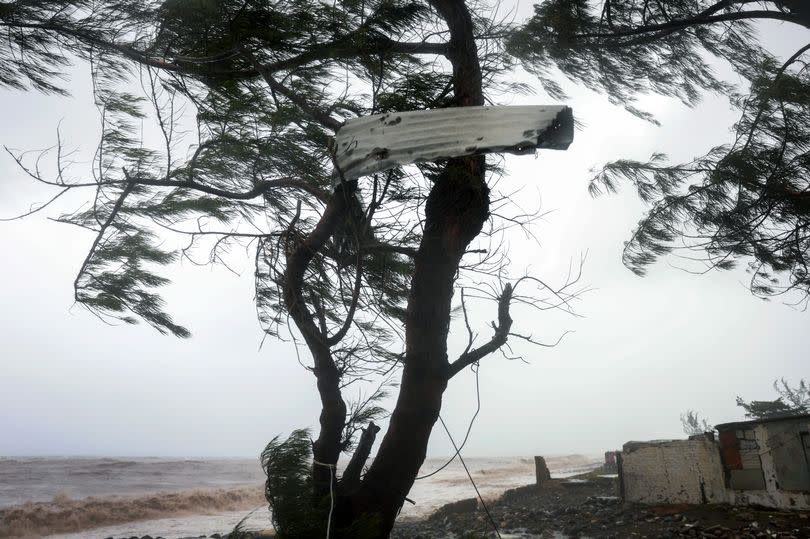Foreign Office issues new travel warning as 'airports are closed' amid 'armageddon' storm

The Foreign Office has issued fresh guidance for UK nationals, stating 'all airports are shut' amid the 'armageddon' hurricane damage. The announcement comes as Hurricane Beryl wreaks havoc in the Caribbean, causing widespread destruction and claiming at least seven lives.
Locals and travellers alike have been moved to shelters as the Category 4 storm lashes the islands with ferocious winds. Grenada's prime minister described the devastation on the Caribbean nation's island of Carriacou as "almost Armageddon-like," while the prime minister of Saint Vincent and the Grenadines referred to the damage on Union Island as "a devastating spectacle."
The US National Hurricane Centre reported that Beryl's eyewall was "brushing the south coast of Jamaica". Torrential rain battered the island for hours, with residents heeding the call from authorities to seek shelter until the storm had passed. Power outages were widespread across the capital.
In a recent update for UK citizens, the Foreign Office stated: "A major hurricane is passing Jamaica on 3 July. Disruption to services is expected island-wide. International and domestic airports are now closed and will only reopen when assessed safe to do so. You should follow and monitor local and international weather updates from the US National Hurricane Center and follow the advice of local authorities including any evacuation orders. See Extreme weather and natural disasters", reports the Express.
Grenada Prime Minister Dickon Mitchell remarked: "Almost total damage or destruction of all buildings, whether they be public buildings, homes or other private facilities. Complete devastation and destruction of agriculture. Complete and total destruction of the natural environment. There is literally no vegetation left anywhere on the island of Carriacou."
Jamaican Prime Minister Andrew Holness, speaking on Wednesday afternoon, disclosed that close to 500 individuals had been placed in shelters. By evening, he noted that Jamaica had been spared from the "worst of what could possibly happen".
"We can do as much as we can do, as humanly possible, and we leave the rest in the hands of God," Mr Holness commented. The government's information service reported that several roadways in the country's interior settlements were obstructed by fallen trees and utility poles, while some northern communities experienced power outages.
With Jamaica under a state of emergency, the island was designated a disaster zone just hours before Beryl's impact. Mr Holness announced that the disaster zone status would persist for the following seven days.
An evacuation directive was issued for Jamaican communities at risk of flooding and landslides. Mr Holness called on residents to evacuate low-lying areas.
Hurricane centre director Michael Brennan, from Miami, during an online briefing, advised islanders to remain indoors throughout Wednesday, anticipating conditions to begin improving overnight.
Jamaica's southern coast, home to Kingston, is bracing for the worst of Beryl with coastal water levels predicted to surge six or nine feet (1.8 to 2.7 metres) above normal tide levels in certain areas.
The island is also under threat from heavy rains of four to eight inches, and up to a foot in isolated regions, raising fears of flash flooding and mudslides due to the mountainous terrain.

 Yahoo News
Yahoo News 
